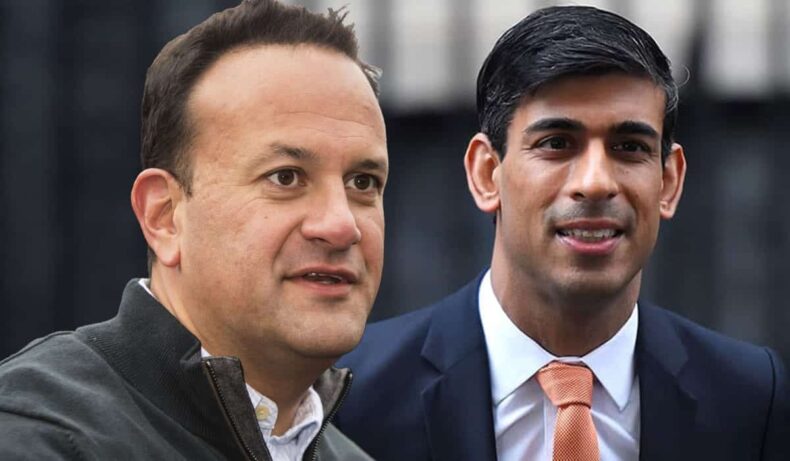British and Irish PMs claim to be open about reforming Northern Ireland’s Good Friday Peace Agreement
Britain and Ireland agreed to revise the Good Friday Agreement and consider its reforms. It is possible only when the power-sharing government agrees to its restoration. British and Irish politicians are to share power. However, the larger party in power for a long time acts as a block in the reformations.
The new political party known as the Alliance, which is neither nationalist nor unionist, has lit a spark that calls for political reforms. The Democratic Unionist Party rejected the proposal.

Leo Varadkar, the Prime Minister of Ireland, states it is pertinent for Britain and Ireland to discuss the reforms of the Good Friday Agreement. No peace treaty can be in stone over a long period. This was in light of the 25th year of the peace agreement.
British Prime Minister Rishi Sunak has addressed those concerned with changes to the Good Friday agreement. He states both parties to the power-sharing management need to agree with the decision and be backed by all concerned parties.
The Need for the Good Friday Agreement
In the early 20th century, the Irish Free State was established under the Anglo-Irish Treaty of 1921. As such, six counties in Northern Ireland remained a part of the United Kingdom. This led to tense relations between the unionists who wished to remain a part of the United Kingdom and the nationalists who favoured uniting with the Irish Free State (later established as the Republic of Ireland).

The decades between 1960 and 1990 saw unparalleled bloodshed and violence, with an estimated casualty count of 3,500 or more. These conflicts were termed “The Troubles”.
To curb the violence, Tony Blair and Bertie Arhen, the leaders of Britain and the Republic of Ireland, agreed to sit down and discuss measures for peace. An envoy from the United States of America chaired the meeting.
What is the Good Friday Agreement?
The Good Friday Agreement is a peace treaty that was signed on April 10, 1998. The agreement was signed in Belfast on Good Friday and also known as the “Belfast Agreement.” This treaty was approved by Northern Ireland and the Republic of Ireland by public vote, respectively.

The agreement is based on the idea of cooperation between different communities. It helped set up a new government in Northern Ireland, representing the interests of both unionists and nationalists.
The agreement consisted of two key elements, a signed treaty between two states and their governments. The other element included a signed agreement between eight political parties and the governments. The eight parties included unionists and nationalist political organisations.
Current Relation between the Agreement And Brexit
Brexit is a term describing Britain’s decision to exit the European Union. This decision came into effect on January 31, 2020. According to a poll, 51.9% favoured leaving the EU, whereas 48.1% were against this decision.
Brexit affected Britain’s relations with the EU and its trade dealings with Northern Ireland and the Republic of Ireland. After Brexit, Northern Ireland became the only region to share borders with an EU nation, i.e., the Republic of Ireland.

Security checks are conducted on goods transported from the UK and EU nations. Both governments agreed that these checks threaten the Good Friday Agreement. The UK and EU then proposed the Northern Ireland Protocol.
This protocol ensures that the goods arriving from the rest of the UK are checked according to regulations in Northern Ireland. The nationalist party Sein Féin agrees with this arrangement. However, the Democratic Unionist Party (DUP) is against this arrangement.
U.S. President Joe Biden and former President Bill Clinton are set to visit Northern Ireland this April to commemorate the anniversary.













